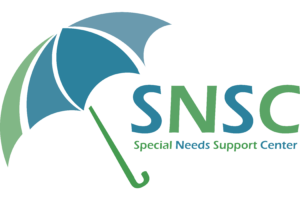Check out our newest newsletter where our amazing Executive Director, Dr Kendra LaRoche speaks on the resiliency of SNSC!
After 5 years of tireless work to further The Special Needs Support Center’s (SNSC’s) mission, vision, and values, Laura Perez, is transitioning from her role as Executive Director. During her tenure, Laura has been the driving force behind SNSC’s growth and success as an organization. A brief sample of her many accomplishments include:
- Making SNSC a model nonprofit and expert in our region.
- Helping SNSC grow stronger financially, operationally, and administratively.
- Expanding youth services from a few times per month to daily programming and adult services quarterly events to daily social, recreational, and advocacy services.
- Launching and expanding SNIP, a highly respected safety program in 24 towns around the Upper Valley to help emergency responders identify and safely respond to vulnerable residents with special needs.
Laura’s vision and leadership will be greatly missed by the staff, board, participants, and community partners alike. She’s stewarded the organization through many periods of change and growth with thoughtful, generous, and exemplary leadership. We want to take this moment to thank her for all the time and care she’s put into SNSC over the years! We know the future has great things in store for her and wish her all the best in this new chapter.
A transition team of board, staff, and interim leadership will be working hard to identify SNSC’s future leadership, allowing us to live out our values and support our vision for the future of SNSC. As we engage in this process, all programs and services will continue as currently provided. The best legacy Laura leaves is the strong base of programming SNSC offers, which will remain strong.
In the coming weeks and months, we’ll continue to share information and updates about SNSC.
Sincerely,
The SNSC Board of Directors
Read current Executive Director Laura Perez’s Reflections on finishing up at SNSC
Please submit cover letter and resume to Laura@snsc-uv.org.
Hours: Temporary 35 hours a week
Dates: Mid-July to August with the possibility to extend
The Special Needs Support Center (SNSC) is an equal opportunity employer. We genuinely value a diverse workforce and inclusive culture and aim for a hiring process that reflects that. SNSC encourages applications from all qualified individuals without regard to race, color, religion, gender, sexual orientation, gender identity and expression, age, national origin, marital status, citizenship, disability, and veteran status.
Position Summary
The Summer Program Facilitator will support both adult and child services so that all people with special needs, across the spectrum and throughout the lifespan, can live their best lives. The Summer Program Facilitator will support SNSC staff to plan and implement programs, interacting with families and community partners. This position will also assist in engaging children in 4 weeks of Camp Aspire. Staff will be flexible, able to supervise children with a range of needs, and be a cooperative team member. Most importantly, this position will require a passion for making a difference and an eager willingness to accept and meet challenges. The Summer Program Facilitator will work within the guidelines, policies, and mission of SNSC and report to the Executive Director.
Position Goal
Program implementation so all participants are supported in a safe environment. To aid in the expansion of camp Aspire and create a positive summer experience for our participants.
Education and/or Experience
- Experience working effectively with children and adolescents with a focus on those with disabilities and their families.
- Other relevant education and experience will be considered.
Duties and Responsibilities
- Commitment to SNSC’s mission, vision, and values.
- Help children be safe and successful during camp, both inside and outside of the SNSC office.
- Able to interact with participants of all ages in a respectful and supportive manner.
- Must be able to work cooperatively with Program Coordinators to support programs and the success of participants.
- Implement behavior management strategies in accordance with SNSC’s training, policies and expectations.
- Able to communicate effectively with families and care providers.
- Collaborate with SNSC staff and volunteers to enrich the qualities of programs.
Qualifications and Skills
- Must possess a strong commitment to collaboration and effective teamwork within the organization and the broader community.
- Must be able to support a range of disabilities, including intensive needs.
- Must be able to communicate effectively with children with disabilities and family members.
- Must possess the interpersonal skills to engage individuals and families from diverse socio-economic and cultural backgrounds.
- Must be able to take positive action in solving problems.
- Must be able to remain open-minded and willing to grow on the basis of emerging information.
Youth and Teen Services Intake
Adult Services Intake
The Special Needs Support Center (SNSC) has received a $5,000 grant from the New Hampshire Charitable Foundation. The grant will help SNSC further their mission of helping children and adults with special needs, and their families, meet their unique challenges through advocacy and program support.
“All of our programs support families and individuals with special needs to become empowered through learning, sharing and collaborating with each other. This grant from the New Hampshire Charitable Foundation reaffirms the importance of our work and their faith in our performance,” said Executive Director Laura Perez. “We are grateful they have joined us again as partners in making our programs available and accessible”.
SNSC is a 501(c)(3) non-profit organization and relies upon the generous support of individuals, businesses, and philanthropic organizations like the New Hampshire Charitable Foundation to operate their programs.
The New Hampshire Charitable Foundation is New Hampshire’s statewide community foundation, founded in 1962 by and for the people of New Hampshire. The Foundation manages a growing collection of more than 1,800 funds created by generous individuals, families and businesses, and awards nearly $40 million in grants and scholarships every year. The Foundation works with generous and visionary citizens to maximize the power of their giving, supports great work happening in our communities and leads and collaborates on high-impact initiatives.
For more information, please contact SNSC at 603-448-6311 or on the web at www.snsc-uv.org.

